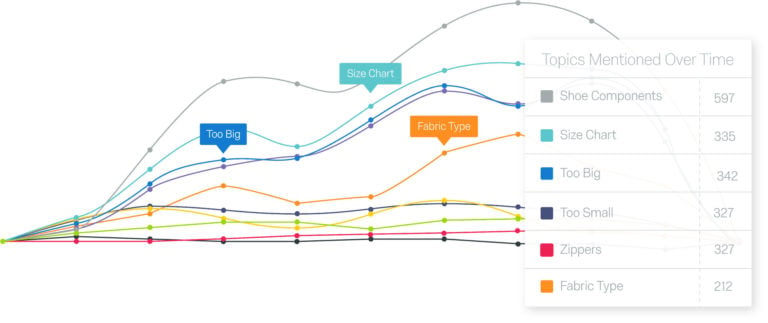Qualtrics: Augmenting Freeform Text Analysis with ML algorithms
Qualtrics, the leader in experience management software, is leveraging CrateDB to process open text survey responses in the Qualtrics Text iQ™ offering. CrateDB enables machine learning algorithms to be applied to the data to make it easier to gain insights from thousands of pieces of feedback per hour.

“Open text is unstructured data, which can be painstaking to sort through at scale,” said Jeffrey Starr, Qualtrics software engineer. “Qualtrics Text iQ users receive thousands of pieces of free-form feedback per hour, so we needed a very specific type of database to help us categorize this open text in real-time. CrateDB was the best solution we found. It gives us the ease of SQL combined with easy scaling, and real-time querying of full-text data.”
Qualtrics gives companies the ability to engage with their customers and employees using the widest selection of feedback channels available in any experience management software – including websites, email, social media, and SMS. Through its Text iQ offering, Qualtrics takes individual text comments, sometimes submitted in different spoken languages, and uses CrateDB to cleanse, categorize and apply sentiment scores to the data for easier analysis. Analysis of these qualitative comments offer deep insights into how customers and employees feel.

Qualtrics counts more than 8,500 top brands, including CVS, General Electric, BlueShield, CBS, Marriott, Mastercard, Kellogg’s and the Girl Scouts, among its customers. Forrester named Qualtrics as a leader in the Q2 2017 Forrester Wave™: Customer Feedback Management Platforms. The company was ranked sixth on the prestigious Forbes 2017 Cloud 100 list.
A new cloud-native database design
CrateDB is among a new breed of distributed SQL databases built on techniques and technologies pioneered by NoSQL databases. The result is a database that is familiar to use for mainstream SQL developers, but also features the scalability, fault-tolerance, and data flexibility of NoSQL databases. CrateDB has a shared-nothing architecture that is ideal for running and scaling on container platforms.
“Everything we build needs to scale quickly to meet customer demand,” added Starr. “CrateDB runs naturally on containers, which makes scaling the database easy for our devops team. We’ve had hypervisors fail, and CrateDB handles that gracefully, without downtime, and it self-heals when the VM is restored and rejoins the cluster.”